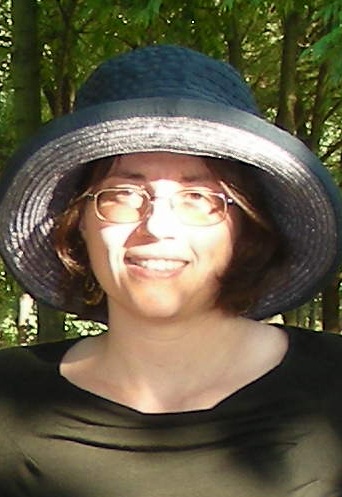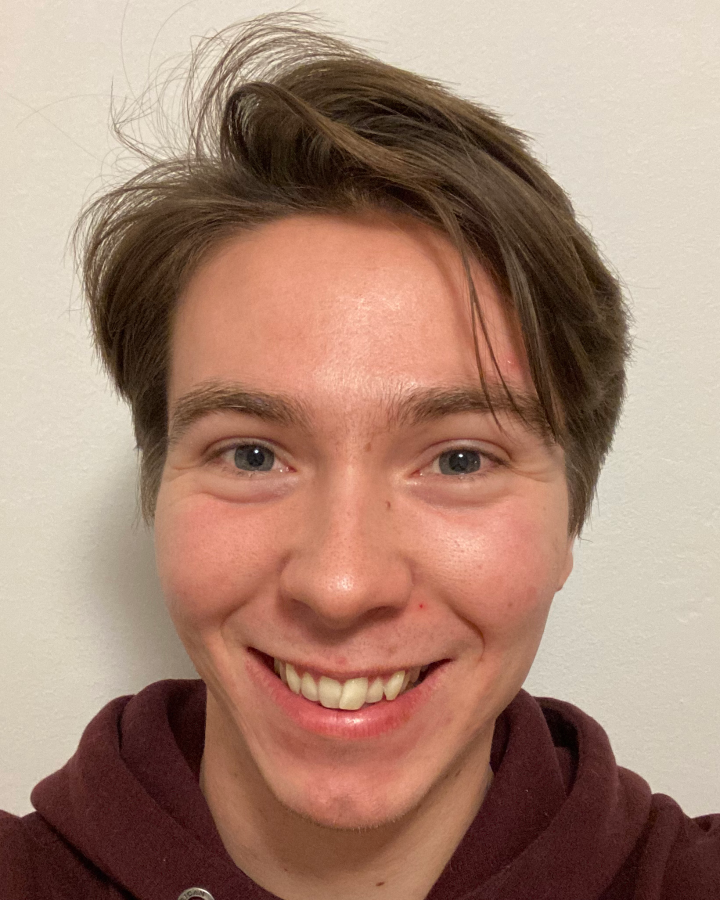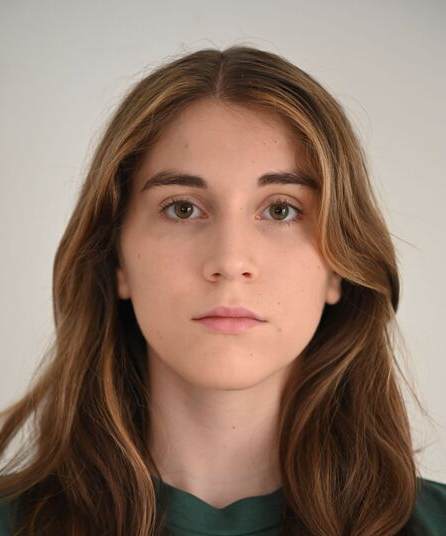Gerti Kappel
O.Univ.Prof.in Dipl.-Ing.in
Mag.a Dr.in techn.
Gerti Kappel
- Email: gertrude.kappel@tuwien.ac.at
- Phone: +43-1-58801-18870
- Office: HC0215 (1040 Wien, Favoritenstrasse 9)
- About:
Gerti Kappel is full professor at the Institute of Information Systems Engineering at TU Wien, chairing the Business Informatics Group. Prior to that, from 1993 to 2001, she was a full professor of computer science (database systems) and head of the Department of Information Systems at the Johannes Kepler University Linz.
From 2016 to 2019, she was a member of the dean’s team of the Faculty of Informatics responsible for research, diversity, and financial affairs. Since the beginning of 2020 she acts as the dean of the Faculty of Informatics at TU Wien.
Her current research interests include Model Engineering, Web Engineering, and Process Engineering, with a special emphasis on cyber-physical production systems. Striving for the unity of research and teaching, she co-authored and co-edited among others „UML@Work“ (dpunkt.verlag, 3rd ed, 2005), „UML@Classroom“ (Springer, 2015), and „Web Engineering“ (Wiley, 2006).
- Orcid: 0000-0002-4758-9436
- Keywords: Process Engineering, Data Engineering, Services Engineering, UML and XML, Business Process Management (BPM), Model Engineering, Workflow Management Systems (WFMS), Web Engineering, Object Orientation, Software Engineering
- Roles: Head of Services, Full Professor
Publications
Mayerhofer, T., Langer, P., Wimmer, M., & Kappel, G. (2013). xMOF: Executable DSMLs Based on fUML. In Software Language Engineering (pp. 56–75). Springer. https://doi.org/10.1007/978-3-319-02654-1_4
TETRABox - A Generic White-Box Testing Framework for Model Transformations
 Johannes Schönböck
Johannes Schönböck Manuel Wimmer
Manuel Wimmer Angelika Kusel
Angelika Kusel Werner Retschitzegger
Werner Retschitzegger Wieland Schwinger
Wieland Schwinger
Schönböck, J., Kappel, G., Wimmer, M., Kusel, A., Retschitzegger, W., & Schwinger, W. (2013). TETRABox - A Generic White-Box Testing Framework for Model Transformations. In 2013 20th Asia-Pacific Software Engineering Conference (APSEC). 20th Asia-Pacific Software Engineering Conference (APSEC), Bangkok, Thailand, Non-EU. IEEE. https://doi.org/10.1109/apsec.2013.21
An adaptable OCL engine for validating models in different tool environments
 Christoph Zehetner
Christoph ZehetnerKeywords:
Astract: The software engineering process has significantly changed over the last decade. The paradigm Model-Driven Development (MDD) gained more and more popularity. In the past, models were typically used for brainstorming and communication purposes. This viewpoint has shifted dramatically. The software engineering process becomes more model-centric and less code-centric. Thus, models are the key artefacts in the development process and all steps rely on these models and their correctness. Sophisticated modelling techniques have been invented to ensure a consistent and comprehensive technology base. The standard for modelling structural and behavioural aspects of systems, the Unified Modelling Language (UML) was introduced by the Object Management Group (OMG). The problem is that an UML model is not necessary expressive enough to provide all complex aspects of a system. Some aspects of the domain are more expressed in natural language. Practise has shown that such situations will lead to ambiguities and to errors. Therefore the Object Constraint Language (OCL) can be used to specify conditions on models that must hold for the system. Apart from the development of standards for modelling systems, several vendors developed Computer-Aided Software Engineering (CASE) tools to provide a wide range of instruments to support the MDD approach. The support of the sophisticated techniques depends on the vendor-s realization of the standards, which is different from tool to tool. In general there is a lack of validating models in CASE tools, which is essential in the early design phase. Additionally, there is only little support for writing OCL expressions for models. Furthermore, models defined by the users of the tool are not validated against the well-formedness rules (WFR) - described with OCL - of the UML specification. An automatic validation of the OCL expressions of the UML specification before code generation allows the detection of errors in the early design phase and reduces problems for the further progress of projects. Thus, it is a huge value that CASE tools support the definition and validation of OCL expressions. The contribution of this master-s thesis is to provide an adaptive solution for managing OCL transformation in different environments or CASE tools, called ADOCLE. Therefore mapping patterns are defined to manage the schema matching between selectable environments (source and target schema). The OCL expressions are applied to a selectable source schema, which is mapped to a target schema. The goal of this work is to analyse OCL expressions and generate semantically equivalent expressions in the target schema depending on predefined transformation patterns.
Zehetner, C. (2013). An adaptable OCL engine for validating models in different tool environments [Diploma Thesis, Technische Universität Wien]. reposiTUm. https://doi.org/10.34726/hss.2013.21963
Automatisiertes White-Box Testen für regelbasierte Modelltransformationen
 Thomas Franz
Thomas Franz Sabine Sint
Sabine SintKeywords:
Astract: For several years, Model Driven Software Development (MDSD) is on its rise and software models are not only used for design purposes but became a major element in the software engineering process. Modeling languages are available to describe models which are the basis for further development. In addition to the modeling languages, model transformations are an important ingredient of model driven software development. Basically, the goal of a model transformation is to transform a given source model to a desired target model. Often the model transformation fails and the troubleshooting is lengthy and timeconsuming because the mistakes can be in the transformation itself or in the metamodels. Another problem is to obtain a good test coverage. The aim of this work is to find an automated process which can test rule-based transformations. A tool is to be developed in Java, which is based on the meta language Ecore and model transformations in Atlas Transformation Language (ATL). One of the goals of the thesis is to find an automated white-box testing approach for model transformations in ATL. By the automatic generation of test instances a high test coverage should be ensured. In addition, various errors and especially runtime errors in the transformation should be detected. Beside the necessary basics such as Answer Set Programming (ASP) and testing in general the concrete implementation of the approach, the White-Box Testing (WBT) Tool, is described. Based on a collection of model transformations of the course "Model Engineering" of the Technical University of Vienna from the years 2009 until 2012 an evaluation is carried out and discussed. The method of evaluation is a case study with an objective test data set as the transformations are not created by ourselves. This set is significant with about 160 transformations. The results of the case study show that the developed WBT-Tool finds different errors. For example, failures during the validation of the models are detected and the tool finds runtime errors in the model transformation. An essential advantage is that there is no interaction except the initial setting and therefore more complex test data can be tested automatically.
Franz, T., & Sint, S. (2013). Automatisiertes White-Box Testen für regelbasierte Modelltransformationen [Diploma Thesis, Technische Universität Wien]. reposiTUm. https://doi.org/10.34726/hss.2013.21933
ProfileGen - ein Eclipse Plugin für Interoperabilität zwischen DSML und UML
 Assad Lodhi
Assad Lodhi Manuel Wimmer
Manuel WimmerKeywords: interoperability, DSML, UML, metamodeling, mappingmodel, WebML
Astract: Current software development projects comprise the development of complex software systems under immense time pressure. In the past decade, model-driven software development (MDSD) has become mainstream to tackle these challenges. In MDSD, domain specific modelling languages (DSML) are becoming more and more important. These languages allow to concisely represent all the peculiarities of a given domain in a model.
But being so specific, interoperability is needed with standardized modeling languages such as UML, because they offer a more common way of communication between different stakeholders. At the moment, interoperability can only be achieved by manually creating transformations between DSMLs and UML which is a challenging task.
This thesis presents a tool named ProfileGen, which tackles this challenge by proposing a semi-automatic approach for generating such transformations needed for interoperability between DSMLs and UML. In particular, a mapping language is presented which allows to manually link DSML elements with UML elements on a high-level of abstraction.
From such mappings, a generator framework automatically creates all artifacts needed for interoperability, including transformations from the DSMLs to UML and vice versa, as well as UML profiles for ensuring information loss free transformations .The approach is evaluated by a real-world case study, namely integrating WebML (a DSML for data-intensive Web applications) with UML.
Lodhi, A. (2012). ProfileGen - ein Eclipse Plugin für Interoperabilität zwischen DSML und UML [Diploma Thesis, Technische Universität Wien]. reposiTUm. http://hdl.handle.net/20.500.12708/161092
Teaching
Project in Computer Science 1
Semester: 2025S; Nr: 194.145; Type: PR; Hours: 4.0; Language: if required in English; View on TISSSeminar for Master Students in Business Informatics
Semester: 2024W; Nr: 180.779; Type: SE; Hours: 1.0; Language: English; View on TISSResearch Seminar
Semester: 2024W; Nr: 188.446; Type: SE; Hours: 2.0; Language: if required in English; View on TISSLiterature Seminar for PhD Students
Semester: 2024W; Nr: 188.512; Type: SE; Hours: 2.0; Language: German; View on TISSModel Engineering
Semester: 2024W; Nr: 188.923; Type: VU; Hours: 4.0; Language: English; View on TISSBachelor Thesis for Informatics and Business Informatics
Semester: 2024W; Nr: 188.926; Type: PR; Hours: 5.0; Language: if required in English; View on TISSScientific Research and Writing
Semester: 2024W; Nr: 193.052; Type: SE; Hours: 2.0; Language: German; View on TISSProject in Computer Science 1
Semester: 2024W; Nr: 194.145; Type: PR; Hours: 4.0; Language: if required in English; View on TISSSustainability in Computer Science
Semester: 2024W; Nr: 194.155; Type: VU; Hours: 2.0; Language: English; View on TISSProjects
Digitale Kompetenzen @ Parlament
Name: DKP; Title: Digitale Kompetenzen @ Parlament; Begins On: 2021-04-01; Ends On: 2021-09-30; Context: Parlamentsdirektion; View Project WebsiteIFC-Roundtrip und Plangrafiken
Name: IFC-Roundtrip und Plangrafiken; Title: IFC-Roundtrip und Plangrafiken; Begins On: 2019-01-01; Ends On: 2020-06-30; Context: tbw solutions ZT GesmbH; View Project WebsiteVienna Informatics Living Lab
Name: Vienna Informatics Living Lab; Title: Vienna Informatics Living Lab; Begins On: 2018-08-01; Ends On: 2019-07-31; Context: Vienna Business Agency (WAW); View Project WebsiteMulti-Paradigm Modelling for Cyber-Physical Systems (MPM4CPS)
Name: MPM4CPS; Title: Multi-Paradigm Modelling for Cyber-Physical Systems (MPM4CPS); Begins On: 2014-10-01; Ends On: 2019-05-31; Context: European Cooperation in Science and Technology (COST); View Project WebsiteCOSIMO: Collaborative Configuration Systems Integration and Modeling
Name: COSIMO; Title: COSIMO: Collaborative Configuration Systems Integration and Modeling; Begins On: 2014-01-01; Ends On: 2017-05-30; Context: Vienna Business Agency (WAW); View Project WebsiteARTIST: Advanced software-based seRvice provisioning and migraTIon of legacy Software
Name: ARTIST; Title: ARTIST: Advanced software-based seRvice provisioning and migraTIon of legacy Software; Begins On: 2012-10-01; Ends On: 2015-09-30; Context: European Commission; View Project WebsiteDARWIN - Model-driven Development and Evolution of Semantic Infrastructures
Name: DARWIN; Title: DARWIN - Model-driven Development and Evolution of Semantic Infrastructures; Begins On: 2012-03-01; Ends On: 2015-02-28; Context: Austrian Research Promotion Agency (FFG); View Project WebsiteTROPIC: A Framework for Model Transformations on Petri Nets in Color
Name: TROPIC; Title: TROPIC: A Framework for Model Transformations on Petri Nets in Color; Begins On: 2009-03-01; Ends On: 2012-08-31; Context: Austrian Science Fund (FWF); View Project WebsiteAMOR: Adaptable Model Versioning
Name: AMOR; Title: AMOR: Adaptable Model Versioning; Begins On: 2009-02-01; Ends On: 2011-09-30; Context: SparxSystems Software GmbH; View Project WebsiteDevelopment of a WEB-based database for the global administration of CAN-Data
Name: Rosenbauer-DB; Title: Development of a WEB-based database for the global administration of CAN-Data; Begins On: 2008-09-01; Ends On: 2009-04-30; Context: Rosenbauer; View Project WebsiteModel-Driven Web Engineering net
Name: MDWEnet; Title: Model-Driven Web Engineering net; Begins On: 2006-12-01; Ends On: 2010-12-31; Context: Johannes Kepler Universität Linz; View Project WebsiteTRACK and TRADE: Creating a Data Mart for Floating Car Data
Name: TRACK™ Title: TRACK and TRADE: Creating a Data Mart for Floating Car Data; Begins On: 2006-10-01; Ends On: 2008-09-30; Context: European Commission; View Project WebsiteModelCVS: A Semantic Infrastructure for Model-based Tool Integration
Name: ModelCVS; Title: ModelCVS: A Semantic Infrastructure for Model-based Tool Integration; Begins On: 2006-01-01; Ends On: 2007-12-31; Context: ARIKAN Productivity Group GesmbH; View Project WebsiteZELESSA: An Enabler for Real-time Business Intelligence
Name: ZELESSA; Title: ZELESSA: An Enabler for Real-time Business Intelligence; Begins On: 2006-01-01; Ends On: 2007-06-30; Context: Österr. Nationalbibliothek; View Project WebsiteAdmina.at goes Austria
Name: Admina.at; Title: Admina.at goes Austria; Begins On: 2005-12-01; Ends On: 2007-09-30; Context: Federal Ministry of Science and Research (bm:wf); View Project WebsiteWomen's Postgraduate College for Internet Technologies
Name: WIT; Title: Women's Postgraduate College for Internet Technologies; Begins On: 2003-01-01; Ends On: 2007-12-31; Context: European Commission; View Project WebsiteTeam
Business Informatics Group, TU Wien
Professors
Christian Huemer
Ao.Univ.Prof. Mag.rer.soc.oec.Dr.rer.soc.oec.
Dominik Bork
Associate Prof. Dipl.-Wirtsch.Inf.Univ.Dr.rer.pol.
Gerti Kappel
O.Univ.Prof.in Dipl.-Ing.inMag.a Dr.in techn.
Henderik Proper
Univ.Prof. PhDResearchers
Aleksandar Gavric
Univ.Ass. MEng. B.Eng.
Galina Paskaleva
Projektass.in Dipl.-Ing.inDipl.-Ing.in BSc

Marianne Schnellmann
Univ.Ass.in BSc MScMarion Murzek
Senior Lecturer Mag.a rer.soc.oec.Dr.in rer.soc.oec.
Marion Scholz
Senior Lecturer Dipl.-Ing.inMag.a rer.soc.oec.
Miki Zehetner
Univ.Ass. DI Bakk.rer.soc.oec. MScSyed Juned Ali
Univ.Ass. BSc MScStudent-Staff

Florian Fankhauser
Projektass. Dipl.-Ing.Julia Smejkal
BSc






